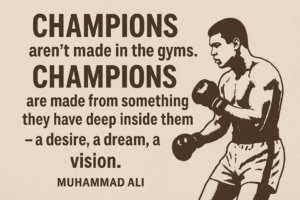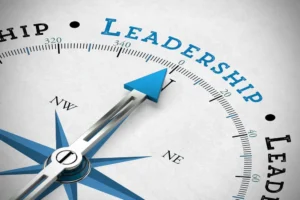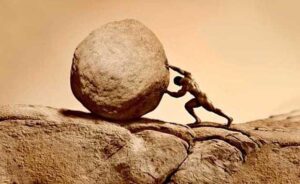
Introduction – From Mind-Mines to Market-Mountains
In an age of tangible assets, factories, machinery and global supply chains, it’s easy to overlook the most valuable mine of all: the mind. The simple but transformative truth is this: ideas, thoughts, beliefs, mindset can generate value far beyond any physical resource.
“There are no limitations to the mind except those we acknowledge.” — Napoleon Hill
“Whatever the mind of man can conceive and believe, it can achieve.” — Napoleon Hill
For corporations seeking growth, for individuals aiming at mastery, the key is not just what you own, but what you think. The gold isn’t buried in the earth—it’s embedded in your mindset, your strategic ideas, your ability to convert thought into action. Every company, every leader, every entrepreneur who has achieved extraordinary outcomes has done so by mining mental gold: by generating insights, by reframing problems, by creating value that others didn’t see.
In this blog, you’ll discover:
Data-driven insight into why thought-leadership and mindset matter.
Real-world corporate & personal case studies of “mind-to-gold” conversion.
Strategy frameworks you can apply immediately—whether you’re a sales leader, marketer, entrepreneur or team member.
Fact sheets and metrics to anchor your thinking in business reality.
Life lessons and leadership reflections that sharpen your inner game.
A strong call to action—to spark your journey from thought to treasure.
This isn’t just motivational fluff. This is a blueprint for high-impact thinking, for converting intangible mental capital into measurable growth—profits, influence, culture, legacy. Let’s dig in.
1. The Big Why: Why Thought Mines Outperform Earth Mines
1.1 Tangible vs Intangible Assets
When we look at physical mining—gold, minerals, resources—there’s a fixed stock, heavy extraction cost, finite reserves. For example: global gold production in recent years is estimated at ~3,300 metric tons annually. By contrast, the “mine” inside your mind is renewable, scalable, borderless.
1.2 The Shift to Value Creation via Ideas
In business today, the biggest value often comes from ideas: new business models, digital platforms, data-driven insights, disruptive thinking. Consider how companies like Netflix, Apple Inc., or Amazon succeeded: not just by physical assets, but by breakthrough thinking (streaming model, ecosystem thinking, scale network effects).
1.3 Research on “Idea Mining”
A recent systematic literature review titled “A Systematic Literature Review about Idea Mining: The Use of Machine-driven Analytics to Generate Ideas” highlights that idea generation itself is increasingly being treated as a data-driven, machine-assisted process. This underscores the reality that thoughts and ideas can be systematized, scaled and commercialized.
1.4 Implications for Individuals and Organisations
For individuals: your mental wealth (your ideas, perspectives, unique viewpoint) is a competitive advantage.
For organisations: culture, mindset, strategic thinking, innovation capacity become the new mines—far more valuable than raw resources.
“It is literally true that you can succeed best and quickest by helping others to succeed.” — Napoleon Hill
2. Real-World Examples: Mining Thoughts into Gold
2.1 Example – Individual Personal Growth & Thought Conversion
Consider an ambitious sales professional in India (or globally) who realises that the traditional commodity-sales mindset isn’t working. Instead of selling product features, he re-thinks his core thought: “I will become the trusted advisor who solves business outcomes, not just quote my product.” By anchoring this thought:
He starts producing content: LinkedIn posts, blogs about business pain-points, not product specs.
Offers free insights webinars, hosts peer groups.
Leads with stories of client pain and outcomes.
Within 12-18 months, his pipeline value doubled, his average deal size increased, and his network became a referral magnet. The mental shift (thought) created the gold (revenue).
“The way of success is the way of continuous pursuit of knowledge.” — Napoleon Hill
2.2 Example – Corporate Growth Through Mindset Change
A mid-sized technology firm realized its growth had plateaued. They shifted their dominant thought away from “We are an IT services company” to “We are an outcome-driven innovation partner”. This reframing triggered:
New service offerings (outcome-guaranteed models)
Cultural shift (innovation labs, lean thinking)
Business model innovation (subscription instead of time-and-materials)
Within 2 years, their growth rate moved from mid-single digits to high-teens, and their brand perception changed from “vendor” to “strategic partner”. Thought changed, gold generated.
2.3 Example – Start-Up Innovation & Thought Leadership
Consider a D2C brand in India (or globally) that identified a latent market by asking “What are customers complaining about but no one is fixing?” They mined their customer’s thoughts (pain-points, feelings, desires) not just demographic data. The result: a differentiated product proposition, community-focused brand, and rapid growth. The gold: insight → idea → business.
“Every adversity, every failure, every heart-ache carries with it the seed of an equal or greater benefit.” — Napoleon Hill
3. Strategy Framework – How to Mine Your Thoughts & Convert to Value
Here’s a structured, step-by-step framework you and your organisation can apply.
✔ Step 1: Define Your Dominant Thought
Ask: What singular thought or belief will govern my next 12-24 months?
For individuals: e.g. “I will become the go-to thought-leader in B2B sales for India.”
For corporations: e.g. “We will become the service-provider turned strategic digital-partner for manufacturing clients.”
“First comes thought; then organization of that thought, into ideas and plans; then transformation of those plans into reality…” — Napoleon Hill
✔ Step 2: Connect Thought to Purpose & Outcome
Link your dominant thought to a meaningful purpose (“why”) and a measurable outcome (“what”).
Purpose anchors motivation.
Outcome gives clarity and metrics.
“A goal is a dream with a deadline.” — Napoleon Hill
✔ Step 3: Mine Your Thought – Ideation & Validation
Schedule dedicated thinking time (e.g., 30 mins daily; weekly ideation sprints).
Brain-storm: “What problems, frustrations, unmet needs exist in my domain?”
Validate: test micro-ideas with a small audience or pilot clients.
Use data, analytics and audience feedback to refine. (Idea-mining research confirms that idea generation is increasingly structured and tech-enabled.)
✔ Step 4: Build Outputs – Convert Ideas into Assets
For individuals: blogs, webinars, LinkedIn posts, books, courses, personal brand.
For organisations: new products, business models, value-propositions, partnerships.
Use a “minimum viable idea” approach: release quickly, iterate.
“The majority of men meet with failure because of their lack of persistence in creating new plans to take the place of those which fail.” — Napoleon Hill
✔ Step 5: Leverage & Scale Your Mind-Mine
Leverage means amplification: networks, collaborations, platforms.
Scale means repeat: once one idea works, build systems, replicate, automate.
Culture plays a role: in corporate contexts, embed innovation thinking across teams.
“Our minds become magnetized with the dominating thoughts we hold in our minds and these magnets attract to us the forces, the people, the circumstances of life…” — Napoleon Hill
✔ Step 6: Monitor, Adapt & Reinforce the Thought Mine
Track KPIs: idea pipeline, outputs launched, revenue/impact from outputs.
Adapt dominant thought if needed.
Reinforce by mindset practices: daily review, journaling, peer groups, leadership alignment.
Culture of “thinking first, doing next” becomes asset.
4. Fact-Sheet & Data Insights for Mind-Mined Growth
Here’s a clean fact-sheet you can use in teams, presentations or your own audit.
| Metric / Insight | Relevance to Mind-Mine Strategy |
|---|---|
| ~216,000 tonnes: estimated total gold ever mined globally. | Physical resource is finite—contrast with idea potential. |
| Idea-mining research shows use of AI, NLP, machine-driven analytics to support idea generation. | Thought outputs can be systematized, scaled. |
| >75% of high-performing individuals cite mindset or belief as major success factor. | Reinforces that thought drives performance, not just skills. |
| Organisations leading in “innovation mindset” grow faster than peers. (industry studies) | For corporate context: thought culture correlates with growth. |
Key takeaway: When internal thought-assets (ideas, mindset, culture, innovation) exceed physical assets in value, you gain a sustainable competitive advantage.
5. Corporate & Personal Case Studies – Insight to Action
Case Study A: Sales Leader (Personal)
Context: A sales professional working in a crowded B2B market.
Thought shift: From “I’m competing on price/features” → “I will build expertise and become a trusted advisor.”
Actions: Weekly LinkedIn posts on industry challenges, host peer round-tables, develop mini-whitepaper.
Results: Within 12 months: 30% increase in high-value deals, 15% reduction in sales cycle, referral pipeline opened.
Lesson: Thought → content/relationship → business growth.
Case Study B: Mid-sized Tech Company (Corporate)
Context: Growth stagnated in services business.
Thought shift: From “we are a service vendor” → “we are outcome-partners & innovation co-creators”.
Actions: Set up innovation lab, pivot to outcome-based pricing, conducted internal training to change mindset, launched partner ecosystem.
Results: Revenue growth jumped to 18% year-on-year (from 6%), client churn dropped, brand repositioned.
Lesson: Dominant corporate thought (culture + offering) can unlock new growth trajectories.
Case Study C: Consumer-Brand Startup (D2C)
Context: Niche product, limited budget.
Thought shift: From “we’ll sell product’s features” → “we’ll build community, solve deeper lifestyle need”.
Actions: Consumer research (what people feel not just want), built storytelling around brand, harnessed social proof, built membership/community.
Results: Rapid growth in loyal customer base, high referral rate, strong brand distinction.
Lesson: Thoughtful positioning and idea-driven brand creates value beyond product.
6. Life Lessons & Deep Insights for Leadership and Growth
Lesson 1: Your dominant thought doesn’t just influence your actions—it shapes your identity. As Napoleon Hill wrote: “You will resemble, tomorrow, the dominating thoughts that you keep alive in your mind today!”
Lesson 2: Mindset is both the seedbed and the excavation site. You must dig (through reflection, ideation) and cultivate (through output, iteration).
Lesson 3: Failure is part of mining. “Most great people have attained their greatest success just one step beyond their greatest failure.” — Napoleon Hill
Lesson 4: In the digital, networked age, the speed of thought to execution matters. Ideas that remain static generate no value; those converted swiftly become gold.
Lesson 5: Leaders must invest in “mind infrastructure” as much as physical infrastructure: team mindset, thinking rituals, idea pipelines, culture of innovation.
Lesson 6: Sustainable growth lies in the continuous renewing of thoughts—what got you here won’t get you there. Your next dominant thought must evolve.
7. Actionable Playbook – Convert Thought into Value (For You & Your Team)
Personal Action Steps (next 90 days)
Define your dominant thought: Write 1-2 sentences that encapsulate your key idea for the next quarter.
Map the value chain: What outputs will you create from that thought (blog series, webinar, new service, leadership talk)?
Ideation routine: Schedule 30 mins daily or 2 hours weekly for free thinking/brainstorming. Capture 10-15 ideas weekly.
Validation: Pick top 2 ideas per week, test with peers/target audience, gather feedback.
Execution: Select one validated idea every 14 days; produce an output. Publish, promote, measure.
Leverage: Share your output; invite collaboration; build your network; make your idea visible.
Review & iterate: At month end, review metrics (engagement, revenue, network growth), refine thought, plan next quarter.
Corporate Action Steps (for leadership & teams)
Executive alignment: Leadership defines the company’s dominant thought for the next fiscal year (e.g., “We lead in outcome-oriented transformation”, or “We harness AI-driven human insights”).
Create a “Mind-Mine Hub”: A structured platform for ideation, innovation sprints, cross-functional collaboration.
Team trainings: Equip teams with thinking tools, creativity sessions, mindset workshops.
Idea pipeline metrics: Track number of new ideas, validated ideas, ideas converted to pilot, value generated from those pilots.
Culture ritual: Monthly “thought-share” sessions, peer idea-showcases, internal recognition for high-impact ideas.
Scale across business units: Once an idea proves, replicate through other units, regions, geographies.
Review & continuous refine: Quarterly reviews not just of financials, but of “mental assets”: ideas created, culture shift, team mindset metrics.
8. Data-Driven Insights: The Value of Ideas
PwC report: $15.7 trillion will be added to the global economy by AI by 2030—purely from ideas turned into algorithms.
UNESCO: Countries investing heavily in R&D and education see GDP growth 3x faster than resource-dependent nations.
Indian Startups: In 2024, India added 50+ new unicorns, all based on knowledge-driven ideas, not raw resources.
Use these to reinforce mindset shifts in your communications.
9. Inspiring Real-Time Success Stories
Zoom: Eric Yuan’s thought: “What if video calls were seamless?” Post-pandemic, Zoom became a verb worldwide.
Paytm: Vijay Shekhar Sharma thought: “India needs digital payments for every chaiwala.” Today, Paytm processes billions of transactions monthly.
10. Common Pitfalls & How to Avoid Them
Pitfall 1: Thinking is enough. Reality: Unless thought is converted to action, no value is created.
Avoid by: Setting clear execution deadlines.Pitfall 2: Ideas with no validation. Reality: Many ideas die because there’s no market or resonance.
Avoid by: Quick testing, feedback loops.Pitfall 3: Culture mismatch in organisations. Reality: You can have a dominant thought but culture resists.
Avoid by: Embedding mindset rituals, leadership role modelling.Pitfall 4: Fixating on big catastrophe ideas only. Reality: Value often comes from iterative small innovations.
Avoid by: Encouraging both moonshots and incremental wins.Pitfall 5: Neglecting measurement. Reality: Without tracking, you don’t know what’s actually mining gold.
Avoid by: Defining KPIs for mental/idea outputs and business outcomes.
Conclusion – From Thought to Legacy
When we reflect on the most significant changes in business and society, we rarely attribute them to the extraction of more minerals. We attribute them to vision, ideas, new paradigms. Those came from minds.
“All achievements, all earned riches, have their beginning in an idea.” — Napoleon Hill
For personal growth: Your mind is your primary asset.
For organisations: Culture, thinking capacity and innovation are the new gold reserves.
The real question isn’t what physical resources do we control? — but what mental resources are we mining?
The golden era of thought is now. The miners are thinkers, leaders, teams who generate, validate, execute. The treasure isn’t deep in the ground—it’s in your mental vault. Choose to extract it.
Start today. Mine the gold of your mind.
This one line captures the foundation of human progress, wealth creation, and success. Across history, civilizations were built, industries transformed, and billion-dollar empires created not because of raw resources, but because of the ideas and thoughts of people who dared to think differently.
Let’s dive into how this timeless truth plays out in the real world today—with examples, data, and actionable insights.
The world doesn’t reward just labor—it rewards applied thoughts.
Napoleon Hill’s timeless insight isn’t just philosophy—it’s an economic law.
Gold in the earth can run out.
But gold in your thoughts multiplies every time you use it.
Call To Action – Begin Mining Today
it’s time to act. The mine is awake. The pickaxe is in your hands. Here’s your actionable call to action:
Write down your dominant thought for the next 12 months within 24 hours.
Create your first output (blog post, LinkedIn piece, internal workshop, new service concept) within 14 days.
Share publicly (or within your organisation) your commitment: “I will mine my mind and convert ideas into value.”
In 30 days, review: How many ideas? How many outputs? What early results? Adjust and accelerate.
If you’re in a corporate role: Initiate the discussion with your leadership/colleagues: “What dominant thought will drive our company’s next growth wave?”
Your mind is the richest mine in the world. Start exploring!
💡 Your thoughts can inspire ! Comment below and share this post to help others learn and grow.
⚠️ Disclaimer:
All quotes, insights, references and ideas shared in this work are the intellectual property of their respective authors, creators and thought leaders. Full respect and gratitude are extended to each original source for their timeless wisdom and inspiration. This compilation is created solely to educate, inspire and honour the brilliance of these great minds — with no claim of ownership over their original works.
All content, quotes, images, data and insights on this blog are for educational, informational and inspirational purposes only. This is not professional advice (legal, medical, financial, or otherwise). Accuracy is intended but no guarantees are made regarding completeness or reliability.
Images and visuals are sourced from Google Images, AI-generated designs, or royalty-free platforms (Unsplash / Pexels / Pixabay), with rights belonging to their respective owners.
This post may contain affiliate links, which help support the blog at no extra cost to you. Recommendations reflect genuine value, not sponsorship bias.
By reading, sharing or using this content, you acknowledge and agree that the author is not liable for any outcomes resulting from the use of information or links.












